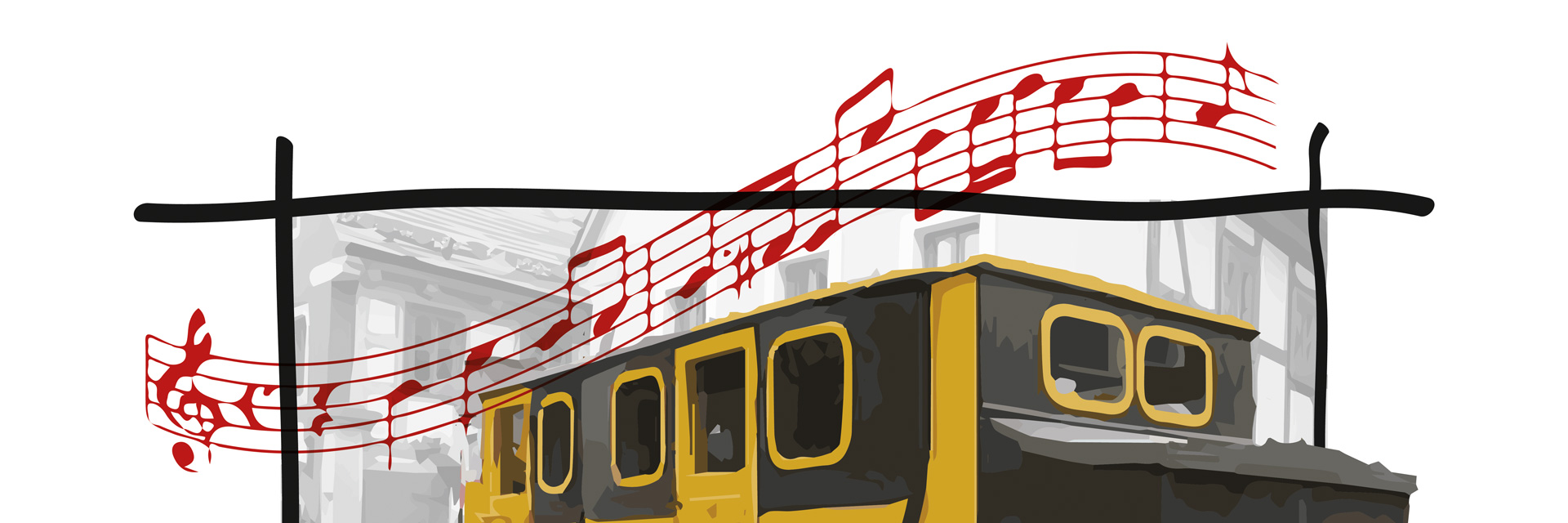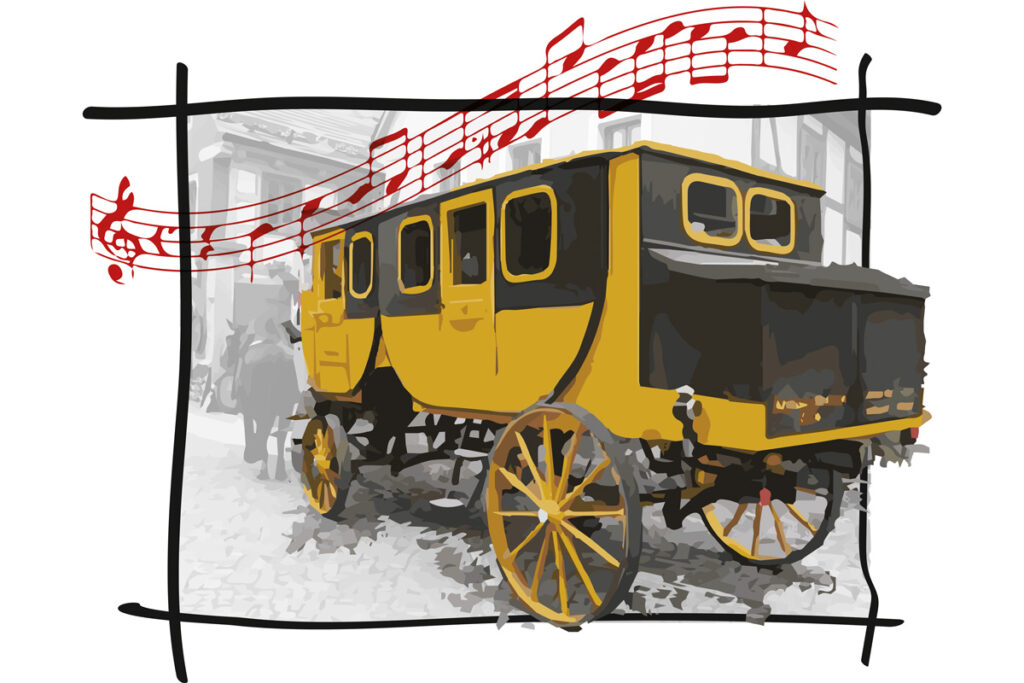My grandmother passed away a year ago. She was 98 years old and the last few years were no fun.
She spent the year before last in her armchair without watching TV, the last in bed. Her eyes were cloudy, reading, her great passion, was no longer possible. Every weekend I drove out, across the city, parked in front of the apartment building, unlocked the door to the stairwell, breathed in the familiar smell of floor polish, old people’s apartments and days gone by. My grandma has lived here for as long as I can remember. I spent the spring break with her, parts of the summer break, the fall break. I sat on the carpet in my aunt’s former nursery and read the badly tattered Donald Duck books by Carl Barks and the collected works of the science fiction series Storm. My grandmother rummaged around the apartment, preparing sour soup or Matjesstippe, and often sat down at the piano. “Grandma, ‘Up on the Yellow Wagon’!” – I was never disappointed.
What do you talk about with someone who is confined to bed in the scenery of their life? Who experiences nothing but visits from the nursing staff, five times a day for five minutes? I switched into chatter mode, talked about the great-granddaughters’ soccer matches and, of course, about the piano playing of the older one, who practiced on my grandmother’s piano. We had been allowed to do this a few years earlier, a piano tuner was delighted with the job of a lifetime. But my grandmother, in her last months, held on to her harmonica. It lay next to the sippy cup with the thin apple juice, and out of old habit I kept calling out: “Grandma, ‘Up on the yellow wagon’!” Those were the moments when light shone in my eyes again, as if the curtain would rise once more after a performance, when everyone had already bowed three times and the lights in the hall were already on, and the leading actress would, without any acting at all, give the audience a tear of touched joy. Unfortunately, my grandmother had no air left in her lungs. “Hoch auf dem gelben Wagen” was reduced to a single note, a thin sound that struggled to get out of the harmonica. But accompanied by a smile on her lips.
What makes me think of that now? I just got out of the car driven by a good friend. We had gone to the weekend house for a men’s weekend, and on the way back he told me about his father. His father has dementia, quite advanced. His father still lives in an apartment with his mother, who is also not well. Difficult circumstances, not easy at all. The friend is worried, but regularly fails with suggestions for some support in everyday life. His phone rang the other day. The landline phone on which only his mother is still calling. But it wasn’t her. It was his father. He wanted to wish his son a happy birthday. It had been months ago, but what the hell. A lilting tone sounded from the receiver. His father had discovered his harmonica, an instrument with which he used to cheerfully drive his wife and children to the brink of despair. He hadn’t played it for 30 years – but had forgotten that. What he hadn’t forgotten: Cat Stevens’ “Father and Son”. Disheveled, narrow, not every note in its proper place. A shaky birthday serenade, on the wrong day, blown into the telephone receiver with thin breath from the distance of the Ruhr Valley to Hamburg. The friend’s voice faltered as he talked about it. The curtain had been raised once again.
PS: Useless knowledge, part 37
“It’s not time to make a change, just relax, take it easy; you’re still young, that’s your fault; there’s so much you have to know, find a girl and settle down, if you want, you can marry; Look at me, I am old, but I’m happy; (… ) All the times that I’ve cried, keeping all the things I knew inside, it’s hard; but it’s harder to ignore it, if they were right, I’d agree, but it’s them they know, not me; now there’s a way, and I know, that I have to go away, I know I have to go…”



